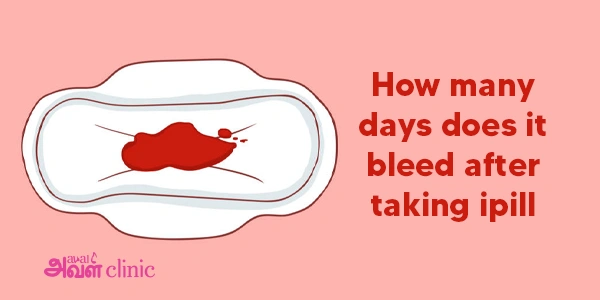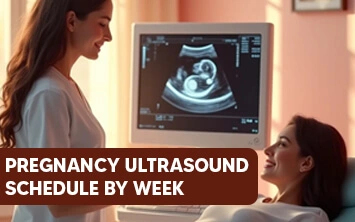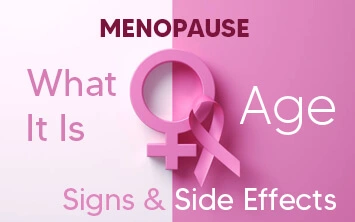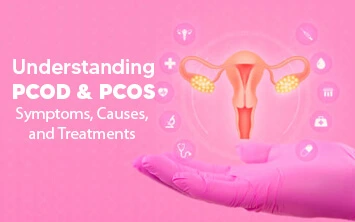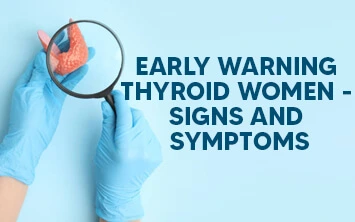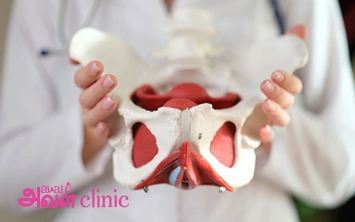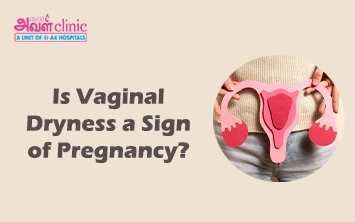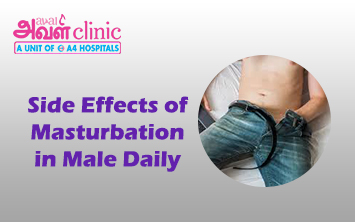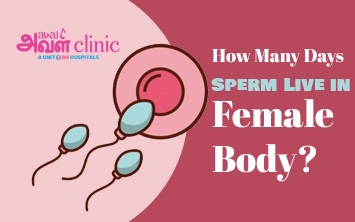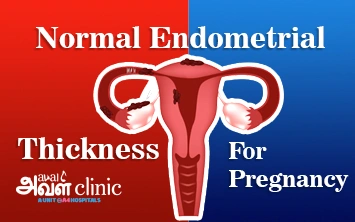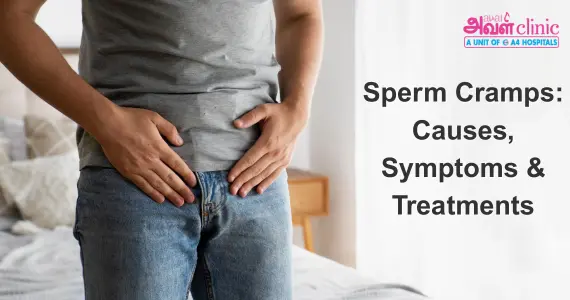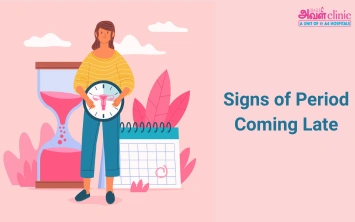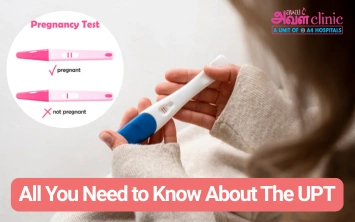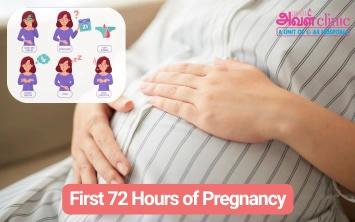Published on: May 23, 2025
Author: Admin
Many couples prefer using birth control pills to prevent pregnancy from having unprotected intercourse. Even though I-pill is not the primary form of birth control pill, couples opt for it as it is an effective emergency contraceptive. Individuals use the I-pill to prevent pregnancy and in scenarios of contraception failure.
I-pill is the safest form of conception as it does not exhibit any long-term negative effects. While these pills can cause temporary negative effects like nausea, menstrual irregularities and so on, they are not harmful and can subside on their own without any medical intervention.
Through this blog, we will help you understand how the i-pill actually works, its effects on menstrual bleeding, how many days does it bleed after taking i-pill and more. So, keep scrolling!
How I-Pill Actually Works?
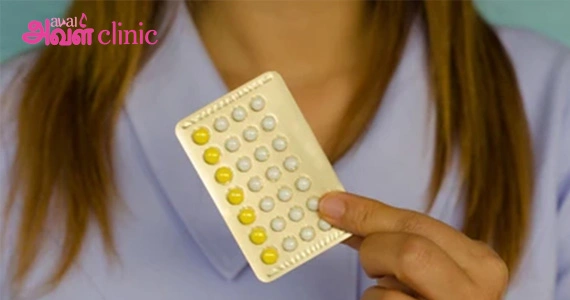
Before jumping into learn how i-pill actually works, let’s try to understand its effectiveness.
As the name says, i-pills are the emergency oral contraceptives. They are significantly effective when taken within 24 hours of having unprotected intercourse.
According to the recent study, the most frequent question asked by many women is i-pill works for how many days? Well, the effectiveness of the pill may drop when taken after a couple of days or beyond. However, I-pill can still prevent the chances of being pregnant for at least five days after having unprotected intercourse.
These emergency contraceptive pills work by:
- Preventing or delaying the ovulation (releasing an egg from the ovaries)
- Preventing the fertilisation
- Preventing the fertilised egg from being implanted into the uterine lining
This can indeed disrupt the hormones that are associated with menstruation and pregnancy. This, in turn, contributes to the development of an abnormal menstrual cycle.
Effects on Menstrual Bleeding
When we say abnormal menstrual cycle, we mention irregular periods along with unexpected bleeding between periods. In short, you may notice changes in your bleeding pattern, which may include:
- Your periods may be a few days delayed
- Your periods may be a few days advanced
- Your periods may either be lighter or heavier than usual
- Your menstrual cramps may be more or less painful than normal
- Your periods may be longer or briefer than usual
All the above-mentioned impacts may certainly be short-term or temporary. If your cycle is late beyond a week or so and you are worried after taking ipill when period will come, it is suggested to perform a home pregnancy test. This is to ensure the effectiveness of the i-pill you have taken.
Note that, in general, your periods may return to normal in the following month of taking the i-pill.
How Many Days Does It Bleed After Taking the I-Pill?
The i-pill is a popular emergency contraceptive pill containing levonorgestrel, used to prevent pregnancy after unprotected sex or contraceptive failure. Many women wonder, how long does bleeding last after taking the i-pill?
After taking the i-pill, it’s common to experience spotting or irregular bleeding within 1 to 7 days. This bleeding may last from a few hours up to 5 days and can be lighter or heavier than a normal period. Sometimes, women notice mild spotting or unexpected bleeding due to the hormonal changes caused by the pill.
After taking I-Pill When Period Will Come

After taking the I-Pill, periods typically arrive within a week of the expected menstrual cycle, though timing may vary due to hormonal changes. The I-Pill contains levonorgestrel, which can delay ovulation or affect the uterine lining, causing:
- Periods within 3–7 days of the expected date for most women.
- Spotting or light bleeding within a week, often a side effect rather than a full period.
- Delays of up to 2–3 weeks, especially with irregular cycles.
If periods are delayed beyond three weeks, or symptoms like severe pain or nausea occur, take a pregnancy test and consult a doctor. Aval Clinics in Chennai offers expert diagnosis and personalized treatment for irregular periods and post-I-Pill concerns.
Does bleeding after taking ipill means no pregnancy?
Bleeding after taking an I-pill may certainly not be the indicator of not being pregnant. This is because you may experience withdrawal bleeding within a week of taking it, which is the common side effect of the i-pill. In addition, withdrawal bleeding and menstruation are different. You can wait for your menstrual cycle to occur. This may confirm how effective the contraception has worked.
What are the Negative Impacts of Taking I-Pill?
The following are some of the negative impacts of taking the emergency oral contraceptives (i-pill), which may include:
Withdrawal bleeding
Women noticing bleeding after taking an I-pill are widely referred to as withdrawal bleeding. This is the most common and often expected negative impact after taking the emergency oral contraceptive (i-pill). This withdrawal bleeding is a significant indicator of the effectiveness of the contraception. The pills work by dropping the levels of hormones in a woman’s body. This causes the uterine lining to shed, which is similar to regular menstruation.
You may notice short and light bleeding after taking ipill than regular periods. If the bleeding is heavier and prolonged beyond a week, it’s highly suggested to have a consultation with the healthcare provider as soon as possible.
The bleeding may start two to three days after taking the pill when the hormone levels drop due to a break in hormonal birth control. It may last for around four to six days. The withdrawal bleeding does not generally require any medical attention.
Have more questions about Menstrual Health? Talk to our experts today.
Call Now: 80047 80048Menstrual Irregularities
Women may notice irregularities in their menstrual cycle after taking the i-pill. This is because the pill contains a high dose of hormones, which may primarily interrupt the natural hormonal balance in a woman’s body. This, in turn, leads to certain changes in the menstrual cycle, like flow, timing, and sometimes even spotting in between the cycles.
Some women may even experience maximum delay in periods after taking ipill. In such cases, it’s advisable to consult a physician.
Gastrointestinal Discomfort
The high dose of hormone present in the i-pill may cause gastrointestinal discomfort. This significantly leads to the development of nausea and vomiting sensations among many women. These negative impacts are generally mild and temporary. They can subsist in no time. If they are bothersome and prolonged, consult a physician.
Breast Tenderness
Breast tenderness is often experienced by women as a side effect after taking the i-pill, or emergency contraceptive pill. This happens because of the hormonal imbalance the pill induces. The symptom is generally temporary and subsides without any medical help within a few days.
Fatigue and Dizziness
Fatigue and dizziness are other common negative effects that women experience after taking the i-pill. For some women, the symptom may be bothersome and interrupt their regular activities. This is generally temporary and subsides without any medical help within a few days.
Other Potential Side Effects
In some scenarios, women may experience less common negative effects of taking the i-pill. They are mood swings, headaches, abdominal cramps, and decreased libido (low sexual drive). Even though the symptoms are less common, it is essential to keep being informed of all possible outcomes when taking the emergency oral contraceptive.
What are the Negative Impacts of the I-Pill on Future Pregnancy
Even though experts claim that the consumption of I-pill is the safest method for preventing unwanted pregnancy, many couples are concerned that after taking ipill is it possible to get pregnant.
Studies show that there are no evident negative effects of infertility associated with the i-pill. While the pills can cause temporary symptoms like nausea, breast tenderness and so on, it does not significantly impact future pregnancy. The i-pills largely work by postponing ovulation and controlling fertilisation. It does not affect the woman’s ability to get pregnant in the future. However, the regular consumption of emergency oral contraceptives may interrupt the ovulation process. This, in turn, may lead to short-term infertility and not long-term infertility.
In addition, there are certain exemptions for the usage of i-pills, which may include:
- Breastfeeding mothers
- Individuals who are allergic towards levonorgestrel
- Pregnant women
- Certain medical conditions like cardio disorders and liver diseases
Summary
I-pills are the effective emergency methods of preventing unwanted pregnancy. The contraception can be a game changer when taken in moderation, especially when needed. However, understanding its negative effects may help women to keep themselves informed about making the right decision regarding their fertility health.
If you still have concerns regarding the practice, we highly suggest having an open conversation with the specialists at Aval Clinics. They can help you better understand your body and guide you.
Contact us today for expert advice and personalized care:

